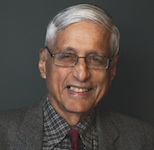"Truth, without fear or favour"
Identifying and capturing the Gauri Lankesh killers, including those who ordered her execution-style assassination, is the responsibility of the Union government as well. Asking the Karnataka government for a report on the killing does not begin to discharge that responsibility. The eerie similarity of the killing with the unsolved murders of M.M. Kalburgi, Govind Pansare and Narayan Dabholkar points to more than one state. In any case, it is the central government that must lead the fight to protect what these killings have violated: The rights to life, belief and expression. The nation is watching.
The Indian state is more than parliament, legislatures and ministries. Three recent events, occurring in rapid succession, encouraged the belief that individual rights have defenders in parts of the state’s structure. First the Election Commission, ignoring high-level pressure, applied precedents and the law to decide the Ahmed Patel/Rajya Sabha question. Next, the Supreme Court, with rare unanimity, gave a momentous judgment declaring privacy a fundamental right. This was followed by the Reserve Bank releasing numbers that seemed to prove demonetisation’s failure. It was an acknowledgment of the public’s right to know the facts.
For the citizen, this sequence provided a much-needed reminder that the Indian state is more than its legislative branch, even when that branch obtains the support, willing or otherwise, of much of the fourth estate: The media. We saw proof that the executive and the judiciary, which are the second and third branches of state power, can come to the citizen’s defence. Historically, the United States has relied greatly on checks and balances. Senator John McCain, the Republican who ran for president against Barack Obama in 2008, reinforced this tradition when he wrote in the Washington Post on September 31:
“We must respect [President Donald Trump’s] authority and constitutional responsibilities. We must, where we can, cooperate with him. But we are not his subordinates. We don’t answer to him. “We answer to the American people. We must be diligent in discharging our responsibility to serve as a check on his power. And we should value our identity as members of Congress more than our partisan affiliation.” India’s judges, election commissioners, Reserve Bank officers, tax officers, police officers and Prime Minister Narendra Modi’s cabinet colleagues answer, likewise, to the Indian people, to the law and the Constitution. They are not servants of a party or an individual.
Although independent India’s record on the primacy of law over office-holders is mixed, we have some powerful examples. Two years after freedom, in October 1949, when a prominent Constituent Assembly member and future Lok Sabha speaker, Ananthasayanam Ayyangar, opposed the constitutional provision that restricted the power of politicians to punish civil servants, Sardar Patel, the home minister, stoutly defended the provision. Added the Sardar:“Today my secretary can write a note opposed to my views. I have given that freedom to all my secretaries. I have told them: ‘If you do not give your honest opinion, then please you had better go.’” Patel went on to tell the MPs: “Do not take a lathi and say, ‘We are a supreme parliament.’” (on 10.10. 49; vol. 3, Patel Centenary Volumes, pp. 122-30) Encouraging officers to be frank with ministers, the Sardar in the same breath asked MPs and ministers not to think that the level on which they found themselves was higher than that of judges, officers and citizens.Protocol certainly has its hierarchies. Offices carry their authority. High office demands respect. But the separation of powers, the rule of law, and the equal value of human beings are fundamental principles of the Indian state, even if what we often run into in real life are their opposites. Which makes it all the more important for us to welcome occasions when officers and judges demonstrate loyalty to the Constitution and respect for the fundamental rights of citizens. It is not easy for a civil servant or judge to dismiss thoughts of consequences. While writing his famous dissent during the Emergency, Justice Hans Raj Khanna knew he was closing his path to the summit.
The frank opinion that Patel demanded was not easy to offer in 1949 and is not easy to provide today. A civil servant takes a risk when he or she points out a proposed step’s flaws. Frankness is not all that easy in the private sector either, or in the NGO world, or even in family conversations. Even in the noble years of the freedom movement frankness could exact a price. Acharya Kripalani once related to me a conversation he had had with Pandit Madan Mohan Malaviya, when a young Kripalani was working as secretary to the Pandit, who was older by 27 years. The great triple “M”’, who among other things was a renowned orator in both Hindi and English, had just delivered a speech in the imperial assembly. “How was my speech?” he asked Kripalani. “A little too long,” Kripalani said. “Malaviyaji didn’t like my reply,” Kripalani told me. In that instance, the price of frankness was small.
In other situations, lack of frankness causes deaths of babies in a hospital, or the failure to catch culprits in acts of violence, the escalation of a riot, or a boost to intolerance. Frankness, the truth without fear or favour, is what many oaths of office require. What death sentences or new laws may not accomplish can be realised through timely frankness inside police stations, hospitals and government offices. Or when legislators and ministers meet behind closed doors.
This article first appeared in the Indian Express
